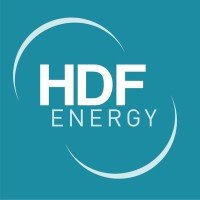Mitsubishi Power, Georgia Power, EPRI complete hydrogen fuel blending at plant McDonough-Atkinson
Tests included blending 20% hydrogen resulting in an approximately 7% reduction in CO2 emissions.

Mitsubishi Power and Georgia Power, alongside the Electric Power Research Institute (EPRI), successfully validated fuel blending of hydrogen and natural gas at both partial and full load on an M501G natural gas turbine at Georgia Power’s Plant McDonough-Atkinson in Smyrna, Georgia.
The demonstration project was the first to validate 20% hydrogen fuel blending on an advanced class gas turbine in North America, and the largest test of this kind to date, with the 20% blend providing an approximately 7% reduction in carbon emissions compared to natural gas.
Georgia Power, the largest electric subsidiary of Southern Company, collaborated with Mitsubishi Power for the landmark testing as part of a continued commitment to new research and development (R&D) to build the energy grid of the future and to reduce carbon emissions across its generation fleet, with Georgia Power has already reduced its carbon emissions by more than 60% since 2007.
The Plant McDonough-Atkinson facility, located less than 10 miles from downtown Atlanta, has served electric customers for more than 80 years and was fully converted to natural gas in 2012 and expanded to power up to 1.7 million homes. It currently operates six state-of-the-art, large-capacity M501G series gas turbines, which deliver high performance and high efficiency, as well as three steam turbines running in three blocks of 2-on-1 combined-cycle configuration.
Mitsubishi Power completed the hydrogen blending on one M501G gas turbine unit with an approximate output of 265 MW by utilizing some results of a project commissioned by the New Energy and Industrial Technology Development Organization (NEDO), Japan’s national research and development agency.
Dry low NOx (DLN) hydrogen blending was successful at up to 20% at the designed 100% natural gas firing temperature, within emissions compliance for the existing air permit, and without impact on the maintenance intervals. The team also confirmed improved turndown by testing up to 20% hydrogen at minimum emissions-compliant load.
This project builds upon Mitsubishi Power’s hydrogen combustion experience and ongoing hydrogen combustion development for 100% hydrogen DLN combustion at the company’s facility at Takasago Works in Hyogo Prefecture, Japan. This site encompasses the development, design and manufacture of gas turbines, as well as demonstration and verification.
The company recently announced it would establish a Takasago Hydrogen Park, which started construction in quarter one of 2022. It will be the world’s first centre for the validation of hydrogen-related technologies.
With this comprehensive capability, the company is working toward commercializing highly reliable, carbon-free power generation technologies and products, including tests and collaboration with partners around the world on a path to 100% hydrogen firing for small- and large-frame gas turbines in the future.
This kind of research and development not only delivers long-term value for our customers but also helps drive the entire energy industry forward toward a cleaner, carbon-free future.
EPRI’s future-focused collaboration with Georgia Power and Mitsubishi Power Americas is helping bring net-zero goals within reach.
